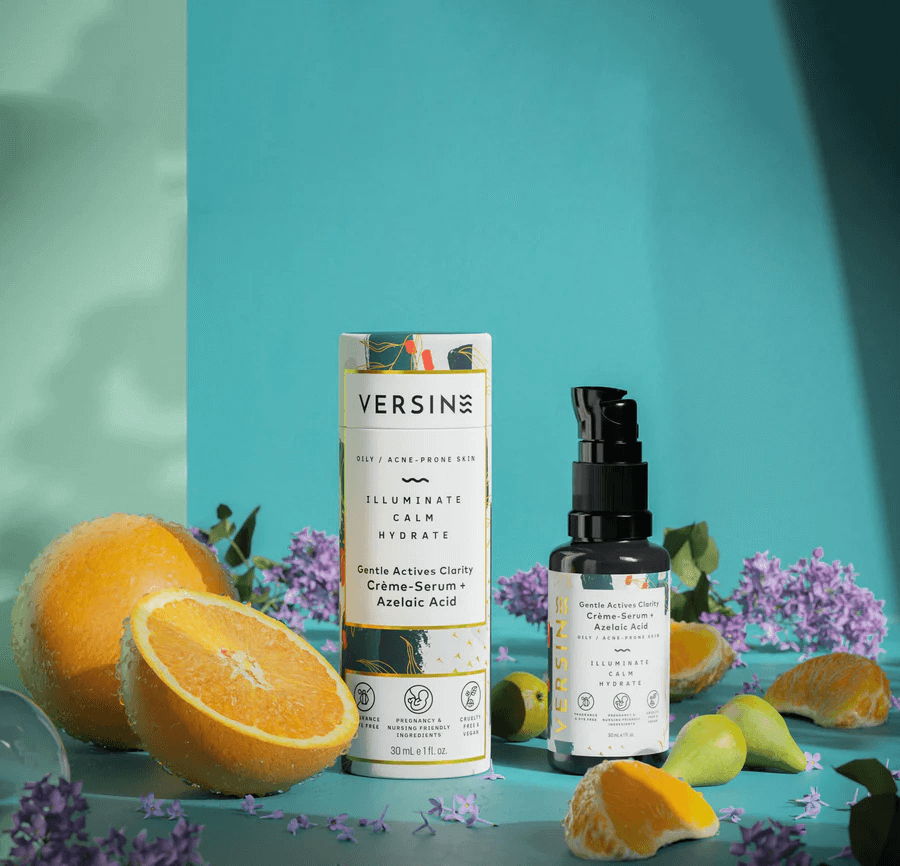Pregnancy is an exciting time, but it also comes with many responsibilities, making it an overwhelming experience for many women physically and emotionally.
Pregnancy brings many physical changes to a woman’s body, such as weight gain, fatigue, morning sickness, and hormonal changes. These changes can be uncomfortable and can make daily tasks more difficult. There can also be a lot of pressure on women to have a “perfect” pregnancy and to make the “right” choices for their baby. This pressure can come from family members, friends, and even strangers, making women feel like they are not doing enough.
It is important for women to recognize that these feelings are normal and to seek support from loved ones and healthcare providers. If you are uncertain about the feelings of becoming a mama, do not fret! You are not alone, as it is normal to navigate the unknowns of childbirth and parenthood with fear and overwhelm, especially if you’re a first-time mother, but we’re here to help.
In this blog, we got to chat with our dear friend, publicist, and advocate for mindful cooking, Yasmina Lyazidi Nasib, who recently became a mom to the cutest angel. Yasmina’s passion for nutrition and mindful eating grew when she faced health issues while living in NYC. She realized the importance of proper nutrition and the connection between nutrition and mental health. She became more connected to her well-being through intentional cooking and mindful eating, incorporating meditation and movement into her daily routine. Yasmina focuses on high-vibration, nutrient-dense ingredients and believes in using food as medicine to nourish the body and mind and preventing the need for medicine as food.
So let’s get to it!
Hi Yasmina!
Tell us a little bit about yourself.
Currently studying to be a registered dietitian nutritionist, my focus is on the connection between nutrition and mental health. I aim to empower others to rethink their relationship with food and develop mindful habits in the kitchen for healthy, balanced lives. As an artist and communicator at heart, I love to share my knowledge and experience with others while exploring different cultures through food, sharing tips on replacing unhealthy ingredients with nutritious and equally delicious options, and providing practical advice on saving time in the kitchen and reducing waste. With a belief that cooking can be a delicious daily practice of mindfulness and creativity, not a burden, I hope to inspire and empower others to eat more nutritiously, enjoy more home-cooked meals with people they love, connect with different cultures through food, and cultivate a healthy relationship with cooking and eating.

Christina Arza Photography
How can a mother prepare for breastfeeding before the baby is born?
Preparing for breastfeeding can help a mother feel more confident and prepared to breastfeed once the baby arrives. Pre-natal nutrition and meditation is where it all started for me. Eat healthy, stay hydrated, remove toxins, practice meditation and get enough rest during pregnancy. These are all things that can support your overall health and well-being, which can positively impact breastfeeding.
Then have conversations with your partner, all the women in your life that are mothers, and educate yourself through reading books, and listening to podcasts. It’s important to have a support system when you need encouragement, emotional support, and practical help.
Find out if your hospital offers a lactation consultant and learn everything you can from her while you’re there. Prepare your breastfeeding supplies like nursing bras, breast pads, coconut oil for nipple cream, nipple shields, and a breast pump.
Set up a cozy and comfortable breastfeeding station at home with a comfortable chair, pillows for support, and easy access to water and snacks. Breastfeeding is one of the most difficult, tiring, emotional and painful things I’ve ever done, especially during the first month. After, it became one of my proudest achievements in life. It is so incredibly empowering, rewarding, beautiful, and creates the most unique bond with your baby.
Optimal nutrition is essential throughout your entire life including pre, during, and post pregnancy. I remember hearing this one quote on the Motherly podcast that says “either I can spend time on my body in health or in sickness, either way my body is going to get its needs met.” Pregnancy puts a significant demand on your body, so nourishing yourself with nutrient-dense foods is critical for both your health and the growth of your baby. What we eat is our energy and it should be utilized and transformed into fuel. Even the way we eat, what we are eating and the intention behind how we eat affects our health.

Christina Arza Photography
Foods like warm soups, stews and porridges, bone broth, steamed vegetables with quinoa, overnight oats packed with superfoods, prenatal protein smoothies, herbal teas, and more all helped me feel my best during my pregnancy. I ate often and listened to my body when it felt satisfied. Cravings are definitely real. When they were unhealthy, I would make a version that was healthy and sometimes I just had that juicy burger or the chocolate chip cookie. If it’s bringing you joy, I believe it’s a nutrient. When you have a regular rhythm of knowing how to take care of yourself and your body, your body will automatically go back to where it usually is in regulating its balance through food. It’s a lifestyle. Researching and learning about nutrition during pregnancy is key, as everything you eat and drink can either help or hurt your baby’s development.
If possible, it’s ideal to start preparing for pregnancy a few months before conception by having a great relationship with your body by being active and mindful of what you eat and drink. It sets a solid foundation for the first trimester of pregnancy because your body has nutrient stores that your baby can draw from. Taking a prenatal vitamin is a great first step. I love the brand Ritual because they have a prenatal and a daily shake protein powder. The prenatal has 12 key nutrients to help prep your body for pregnancy and supports your body during pregnancy. Plus they are vegan, non GMO, science backed and have no artificial ingredients.”
Proper hydration is also crucial during pregnancy and breastfeeding. Electrolytes can help maintain fluid balance, aid in blood flow, regulate blood pressure, contribute to bone development, and influence hormones. While pregnant, I discovered LMNT, an electrolyte drink mix. Not only did I love the taste of water that LMNT added but it provided all the necessary electrolytes without any sugar or artificial ingredients. In addition to taking a prenatal vitamin, there are specific foods to be aware of for optimal nutrition during pregnancy:
Omega 3 fatty acids: These are critical for healthy fetal brain and retina development. Our baby’s brain is 75% DHA so making sure you get enough of this fat is setting your baby up to have phenomenal brain health. My favorite sources include cod liver oil, algae oil, chia seeds, flax seeds, and fishlike salmon, consumed a few times a week.
Choline: This nutrient is important as it helps DHA get to the baby’s brain, helps your baby’s spinal cord develop properly, and may protect them against neural tube defects. You can find choline in eggs, broccoli, liver, chicken, and grass fed beef.
B Vitamins: B9 and B12 are crucial for neural tube development and cellular energy. Folate (B9) is instrumental in fetal development, including the brain, visual, bone, formation of new red blood cells, and overall health. My favorite sources of folate include lentils, eggs, asparagus, spinach, broccoli, avocado, beets, kale, Brussels sprouts, and artichoke. My favorite sources of B12 include sardines, liver, tuna, salmon, eggs, and fermented Greek yogurt.
Magnesium: This nutrient helps support sleep, mental health, and prevents leg cramps. You can either take a supplement or regularly enjoy magnesium salt baths.
Greens: Including a variety and abundance of greens in your diet can aid in detoxification, provide fiber, folate, and alleviate nausea. Broccoli and dark leafy greens like spinach, kale, and Swiss chard are great options.
Saturated Fats: These fats help with skin, gut, and hormonal health, and aid in the absorption of fat-soluble vitamins like A, D, E, and K. Vitamin K2, found in butter is especially important for your child’s bone development. My favorite sources of saturated fats are ghee, butter, and coconut oil.
What are some exercises that can safely be done during pregnancy and postpartum?
I believe it’s important to not only focus on the physical aspect, but also exercise your mind through meditation. This allows us to slow down and be really present in our bodies. It gives us a careful attention, openness, and acceptance of experience in the present and for the rest of our day. Everyone’s journey is different, so it’s essential to experiment and find what works best for you.
During my pregnancy, I was fascinated by all the benefits of exercise for both the mother and the fetus. Studies have shown that exercise during pregnancy is associated with increased chances of having a full-term delivery and stimulating normal birth weight. It may also contribute to babies becoming physically coordinated earlier, which can influence their motor skills development later in life. I was fortunate to have a healthy pregnancy and a body that kept up with me. My routine during pregnancy included daily meditation, and either prenatal pilates, yoga or light stretching, and walking. These exercises were gentle on my body while also helping me build strength and flexibility. I also learned how to connect deeply with my body and the life I was growing through breathing techniques that focused on my abs and pelvis. Melissa Wood Health has some incredible pre and post natal workouts that I followed along.
I had an emergency c-section and diastasis recti which leaves your core and entire body feeling fragile, weak, vulnerable and in pain. After giving birth, my goals were to start slow, get back in tune with my body and eventually strengthen it. Taking it easy and being gentle with yourself, both physically and mentally during this transformative time is essential. After I was cleared by my doctor, I began with a lot of breath work and connected to my core and pelvic floor so I could strengthen it. I was mindful of not putting strain on my abdominal muscles and avoided heavy lifting to prevent exacerbating my diastasis recti and other injuries. Postpartum, my body was craving slow and intentional movements where I could strengthen the mind-muscle connection. Ultimately, I think listening to your body and doing what feels good is all that matters.
Christina Arza Photography

How can mothers prioritize self-care during the postpartum period?
The postpartum period can be a whirlwind of emotions, from exhaustion to hormonal fluctuations, soreness, joy and sadness, all happening simultaneously. As mothers, our top priority is often focused on caring for our newborn, which can make it challenging to prioritize self-care. There are going to be days when we are exhausted, compare our journey to others, expect things instead of experiencing what is, or have a perception of what things should be like. We can change our inner voice and make the best out of our experience. We should feel empowered and grateful that our body created a child, birthed a child, and is now feeding a child. I have such respect for my body and its magical capabilities and I attribute that to nourishing myself physically, mentally, and spiritually. We need to give our mind and body the love it desires and deserves. Self-care is not selfish at all.
Here are some ways I practiced self-care during the postpartum period:
- Start your day with tea for comfort and a cleanse. Then drink a green smoothie for a quick and easy way to nourish and fuel your body with essential nutrients.
- Take your supplements and eat nourishing foods regularly to support your body’s recovery.
- Create a routine with your partner that allows you to have time for yourself, whether it’s going outside for a walk, getting some sleep, taking a shower or a long bath, or doing something that makes you feel beautiful.
- Practice meditation while breastfeeding or bottle feeding your baby. This can help you be in tune with your body, reflect on your journey, declutter your mind, and practice gratitude for everything you have. Kai and I meditate everyday together before his morning nap using a guided meditation app. With practice, it has become a habit and created a deeper bond between us. He now anticipates it and breathes in, smiles, and runs to our rocking chair every time I say let’s go meditate. As soon as I press play he takes another deep breath in. He falls asleep by the time the meditation is over. It works every time. It’s so peaceful and restful. I crave it everyday. It’s such a mindful way to create quiet time and transition into the next part of your day. I also have so much more energy throughout the day. I can’t recommend this habit enough.
- Go on mindful walks with your baby and partner while your baby sleeps, allowing you to get some fresh air and gentle exercise.
- Spend quality time with your partner while your baby sleeps, nurturing your relationship and maintaining a strong support system. Love is the best healer.
- Ask for help from your family or friends, whether it’s with meals, groceries, or laundry. Surround yourself with people who are supportive and loving.
- Make time for activities you are passionate about, such as cooking, reading, exercising, writing, watching movies or catching up with friends. It is important to engage in things that bring you joy.
- Remember to be kind to yourself. You have just created, birthed, and are now caring for a whole human being. You are a magical mama, and it’s important to acknowledge and appreciate yourself.
How can mothers involve their children in healthy eating habits?
Involving children in healthy eating habits can set the foundation for a lifetime of positive nutritional choices and a healthy relationship with food. Mothers can lead by example by modeling healthy eating behaviors, making food fun, cooking with them, exposing children to new foods, eating together as a family everyday, educating them about nutrition, promoting self-regulation, and more. Limit sugary and processed foods in your child’s diet, and instead encourage whole, minimally processed foods as the foundation of their diet, along with healthy snacks such as fruits, nuts, and vegetables.
Introducing children to different foods, colors, flavors, and textures can make mealtime exciting and enjoyable. Involve your children by showing them where food comes from, and having them help or watch you meal prep and cook. This can help them develop an appreciation for the food they eat. For example, I cook every day so I carry my baby in a baby carrier while I cook and he loves it. It’s been so beautiful to see the evolution of his reaction to cooking. As an infant he could only appreciate the smells and colors, but now as a 17 month old, he loves to help me mix and taste the food. He points to different ingredients wanting to know what they are and what they feel and taste like so I narrate every detail. Also, there are so many opportunities for language and cognitive development through cooking. Whenever he wants to cook with me he brings me the carrier and says “cook.” One of his first words was actually “cook.” One of my favorite things is seeing how calm, focused, and quiet he becomes when he is helping me in the kitchen. It’s a nice break for both of us.
Encouraging mindful eating by teaching children to listen to hunger and fullness cues, eat slowly, and savor their food is also beneficial. Avoid using food as a reward or a mandate, and instead, promote a healthy relationship with food that focuses on nourishment and enjoyment. This can get rid of power struggles and the stress that can arise from feeding your child. What I found works for us is baby led weaning and eating together as a family every night. We have a positive, interactive family meal experience. I offer my baby a variety of healthy foods in a beautiful way, kind of like a mini buffet on his plate and let him feed himself. I let him explore and never force him to eat anything. This is an opportunity for them to exercise choice, through eating what they want first and last and how much of it. Sometimes he eats everything, sometimes he eats only one food on his plate and other times he has a few bites and plays with the rest of his food. It gets messy. It’s like art for them. There are many benefits to allowing your baby/toddler the luxury of playing with their food. It builds curiosity, which encourages them to explore new foods and not be picky eaters. It also builds self control, autonomy, teaches them how to feed themselves, and so much more. They will also throw food on the floor as a form of communication. I try never to get upset or pick it up right away or I will create a negative feedback loop. Most of the time if they throw food on the floor it means they are done eating, want your attention, or didn’t like the food. So, communicate back and get to know your baby during meal time. Tell them they just threw their food on the ground and ask if they are all done. Offer them more food and before you know it they will be eating again and won’t be throwing their food on the ground anymore.
Lastly – Any books, podcasts, or cultural references like recipes you recommend?
Books, podcasts and cultural recipes can be valuable resources during pregnancy, birth and early motherhood. Here are my recommendations:
- Books: Nurture: A Modern Guide to Pregnancy, Birth, Early Motherhood — and Trusting Yourself and Your Body by Erica Chidi, The Mama Natural by Genevive Howland, Ina May’s Guide to Childbirth, The First Forty Days by Heng Ou
- Podcasts: Motherly, Be Well by Kelly Leveque
- Cultural Recipes: The first recipe I want to share is a pomegranate skin and ginger turmeric root tea. This delicious tea recipe has been passed down in my family for decades. In a small pot, boil organic pomegranate skin, a few slices of fresh turmeric root and ginger root, and one star anise. Let it boil for up to 15 minutes and strain it into a cup. I like to make big batches of this and bottle it up in the fridge. On an empty stomach, first thing in the morning, I pour some into a cup and add hot water until it reaches a good temperature. It has numerous benefits and always leaves me feeling refreshed and cleansed. The other recipe is Sellou, a traditional Moroccan sweet treat that is made from a combination of toasted sesame seeds, almonds, flour, honey, and spices including cinnamon, anise, and nutmeg. It is known for its high energy content and provides nourishment and sustenance postpartum and while breastfeeding.
Brands We Love to Love
Versine, The Grove Collaborative, MUD\WTR, and Public Goods.
We want to thank Yasmina for her insight!
Check out her Instagram to learn more about her lifestyle.
What did you learn from this blog? How has navigating pregnancy been for you?
Let us know in the comments or by DMing us on our Instagram.
Interested in having a blog featured?
Email us at info@cadaconsult.com!





